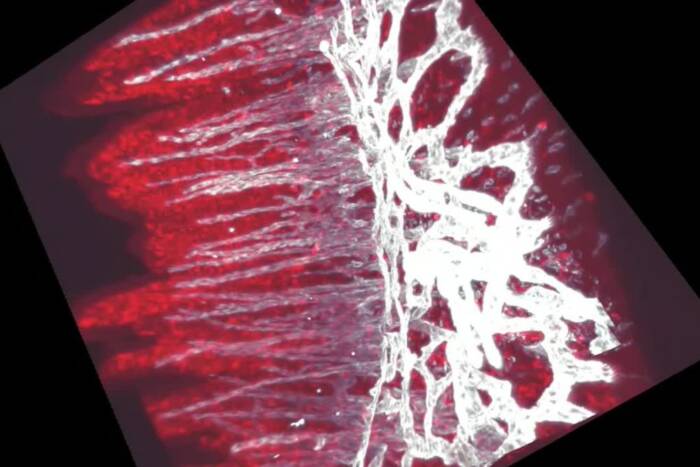Richard Krause, former lab head and advocate for infectious disease research, dies
by WYNNE PARRY
Richard M. Krause, a former Rockefeller University faculty member who later became director of the U.S. National Institute of Allergy and Infectious Disease and presciently warned against complacency toward infectious disease, has died at the age of 90.
A fascination with the streptococci bacteria extended throughout Dr. Krause’s scientific career. As a medical student at Case Western Reserve University, he took a break to work for Charles H. Rammelkamp, who devised a way to prevent rheumatic fever, which is caused by an earlier Streptococcus infection. He later led work on streptococcal disease, including rheumatic fever, in India, which continued until shortly before his death.
“Dr. Krause had a long, productive scientific career, but perhaps his most significant contribution came very early on. During the first half of the 20th century, rheumatic fever was a major killer in the United States, but the use of penicillin to treat the earlier infection changed that,” says Emil Gotschlich, senior consulting physician emeritus at The Rockefeller University Hospital, who worked alongside Dr. Krause in Maclyn McCarty’s lab.
Dr. Krause joined Rockefeller in 1954, to work on Group A Streptococcus and the immune responses of rheumatic fever patients. Within the McCarty lab, Dr. Krause rose to associate professor, then left in 1962 for a short stint at Washington University School of Medicine in St. Louis. He returned to Rockefeller in 1964 to establish his own lab where, using strep, he and colleagues worked out the early genetics by which the immune system generates antibodies.
He left in 1975 to become director of the U.S. National Institute of Allergies and Infectious Diseases, part of the National Institutes of Health. At the time, national attention had shifted away from infectious disease toward other threats, such as cancer. Krause strove to shake off this complacency. The publication in 1981 of his book, The Restless Tide — The Persistent Challenge of the Microbial World, coincided roughly with the emergence of AIDS in the United States.
“Richard appreciated the importance of science history — the thought processes that go into a discovery and the personalities involved,” says Vincent Fischetti, professor and head of the Laboratory of Bacterial Pathogenesis and Immunology at The Rockefeller University, who also worked alongside Dr. Krause when he was at Rockefeller. “For several years prior to his death he was researching a new book describing the history of streptococcal research, including the groundwork for the important findings that led to the near elimination of rheumatic fever and rheumatic heart disease here in the United States.”
Dr. Krause died January 6 in Washington, D.C.


